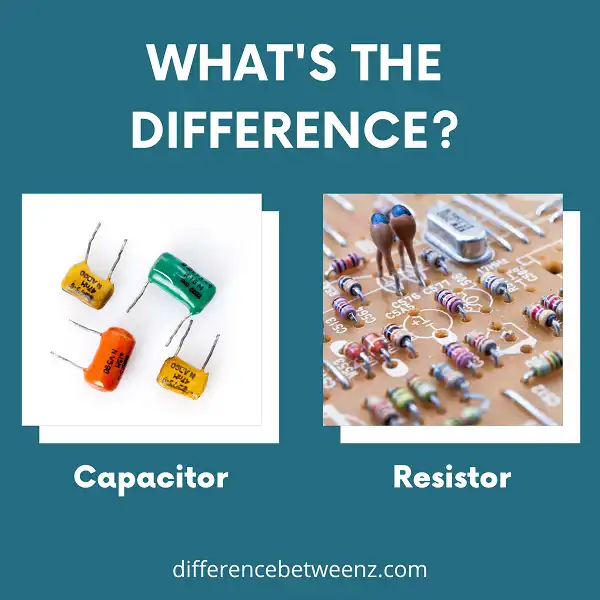Are you confused about the difference between a capacitor and resistor? You’re not alone! If you are trying to decide which one is best suited to your needs, or even just understand how they work, then this article will provide some clarity. We’ll take a look at what each component does, some of their benefits and drawbacks, as well as discuss when it’s better to use one over the other. By the end of this post, you’ll have a more complete understanding of capacitors and resistors so that you can make an informed decision on whether a capacitor or resistor is right for your project.
What is Capacitor?
- The capacitor is an electrical component used for storing and releasing electric energy. Capacitors are typically composed of two parallel conductive surfaces with a dielectric material between them.
- Capacitors can be used to store direct current, filter out or block high-frequency interference, reduce start-up time on motors, stabilize voltage supply and regulate output levels.
- Capacitors also come in many sizes and shapes depending on the amount of charge they need to store and the purpose it will be used for. Capacitors are an important component in any electrical system as they are essential for smooth functioning and efficient power delivery.
What is Resistor?
The resistor is an electrical component that controls the flow of current through circuits. Resistor plays a vital role in controlling power and voltage in electrical devices like TVs, computers, and other devices.
- It works by absorbing energy from the circuit and transforming it into heat. Resistors can come in different shapes, sizes, and values to meet specific requirements for a certain application.
- The resistor is also important for safety reasons, helping regulate the high-voltage environment to prevent injury or damage to components.
- Resistor technology is a crucial part of today’s high-tech products. Understanding how resistors work will help you better design and maintain your electronic projects.
Difference between Capacitor and Resistor
Capacitor and resistor are two important electronic components that perform distinct roles in an electronic circuit.
- Capacitors store electrical energy in the form of an electric field, which allows current to flow through the device for a certain amount of time.
- Resistors, on the other hand, convert electrical energy into heat, reducing the electrical potential between two points along the circuit.
- A Capacitor exhibits characteristics of both a conductor (as it can pass a current) as well as an insulator (as inertia prevents it from conducting constantly).
Resistors are ideal at sustaining a fixed voltage or current level within a circuit. Capacitors and resistors are essential pieces of equipment when constructing or troubleshooting any type of electronics project or device.
Conclusion
In order to understand the difference between a capacitor and a resistor, it is important to first understand what each component does. A capacitor stores electrical energy in an electric field, while a resistor converts electrical energy into heat. The main difference between the two components is that a capacitor can store more electrical energy than a resistor. Because of this, capacitors are often used in power supplies and electronic circuits where they need to store large amounts of electrical energy.


